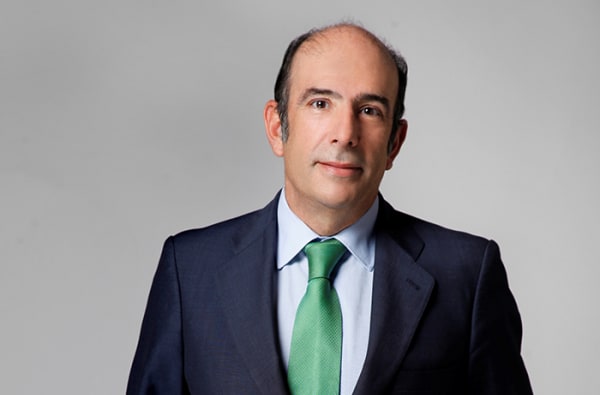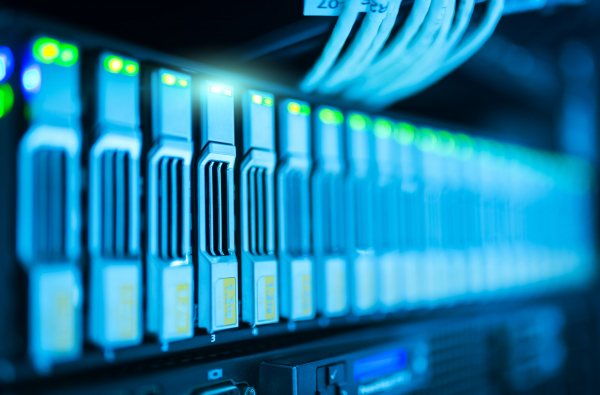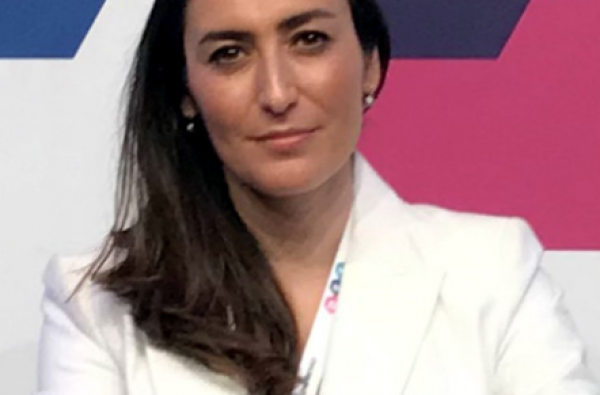By Cristina Sánchez
Originally Published by MIT Technology Review in Spanish
For Enagás' CEO, Marcelino Oreja, one of the greatest levers of social change lies in the capacity of companies to innovate, supported by new consumer demands. He explains his strategy to improve not only products and services, but also his own processes
Although Enagás is almost half a century old, the entrepreneurial spirit is very present in its headquarters in Madrid (Spain). The building houses a start-up incubator where employees take the first steps in their own innovative projects. Its CEO, Marcelino Oreja, explains: "We create companies under the umbrella of intra-entrepreneurship so that they have an agility that a company like ours does not have".
For this type of initiative to be successful, he advises: "You have to make sure that this area of entrepreneurship is very isolated and enjoys a high degree of autonomy, and you have to convince the classic executives that [the area] is necessary.
With these rules, this natural gas transportation company has already created seven start-ups thanks to Enagás Emprende, the open innovation and intra-enterprise program it created in 2015. In its latest edition, it also seeks to attract ideas from outside the company to boost renewable gases, improve energy efficiency and promote sustainable mobility. After all, the energy transition is one of the main challenges facing the company.
One of the 10 Emerging Technologies that MIT Technology Review has selected for 2020 is identifying the role of climate change in extreme weather situations. At the height of the climate emergency, what innovations is Enagás exploring to contribute to a more sustainable energy system?
Sustainability is very important to us. We have halved our carbon footprint in the last four years and will halve it again in the next three. We have made a commitment to be carbon neutral by 2050. We're working very actively to make gas a blended product of our natural gas and renewable gas.
It's about decarbonizing, not electrifying. The most urgent thing is to reduce the carbon footprint of natural gas by blending it with other gases, and the most efficient and doable thing is to replace other fossil [fuels] with less polluting natural gas. I know that the best thing would be to directly eliminate the carbon footprint 100%, but that is not possible today.
Do you think natural gas will be a transitional fuel?
Of a transition that is going to be very long. In some industrial sectors there is no alternative to natural gas, nor do I think there will be in the next 20, 30 or 40 years. If we want to eliminate the carbon footprint, we will have to find mechanisms to capture CO2, there is still no other way (see Carbon capture: from marginal science to business boom).
How are you promoting the generation of renewable gases?
We have a very strong R&D programme to invest in hydrogen and biogas generation and production technologies. For example, in hydrogen generation we are investing in a new technology called electro-photocatalysis. As in all innovative processes, if we are right and it works, it will be disruptive. It's a matter of putting resources, time and focus.
Furthermore, in line with European transporters, we are working to ensure that the gas infrastructures are fully operational for the storage and transport of these gases of renewable origin.
How do you think new formulas will be developed to curb climate change?
The only way to find solutions is to encourage the search for them. We have to innovate in the fight against climate change and those of us in the market and those with resources will solve it. The fight against climate change needs large companies, only they can deal with this emergency.
Corporations are the ones that have expert professionals, resources, knowledge, and that is why I believe that we are the ones that can contribute the most in the fight against climate change. We all have a role: the administrations, the organizations, each person in their day-to-day work, but the companies are the ones with the real levers to put it into practice. How do we face it? Through innovation. I believe that demonising large corporations is a mistake. Here we are talking about adding and contributing.

Do you think that the business community is more aware of the importance of sustainability?
It is true that sensitivity and mentality have changed. Sustainability is very important for my investors and also for all stakeholders. We have to be clear that companies have to have a purpose and I think that a lot of progress has been made in this in recent years.
We also need the consumer to demand, because it is not enough that it is something for politicians and large corporations. The fight against climate change is a matter for each and every one of us.
In addition to technologies specific to the energy sector, big data and artificial intelligence (AI) are changing both science and business management. How are you applying these new technologies in your organization?
We see them as a perfect lever to increase the sustainability and efficiency of our infrastructures. Driving the effective integration of IT and operational technologies is critical to keep data and operations synchronized to achieve excellent operational results and greater future performance.
Anticipating, making decisions based on data is also key for us. We not only want to be reactive, but also anticipate with predictive models and simulations, calculating energy efficiencies from asset construction to operation and maintenance.
What value are these new technologies bringing to your business?
In the area of operation and maintenance of our infrastructures, technologies such as automatic learning are allowing us to predict failures in our main equipment, optimise our maintenance ranges and extend the life of our assets.
On the other hand, we have already promoted some start-ups that work with artificial intelligence or big data. These technologies allow us to have more versatile and efficient systems. For example, our internal start-up SEA has developed a digital platform that helps to optimize the measurement and operation processes associated with gas transportation through AI.
We live in the world of data: wearables and Internet of Things (IoT) devices will give us access to unprecedented knowledge. The IoT can also provide a high level of information about the energy system itself. How is Enagás improving the transport of natural gas thanks to the IoT?
We are already working to incorporate this type of technology to provide reliable and secure information to network users by verifying the integrity of data on energy transactions between the different players in the gas system.
IoT allows us to have a more accurate view of what is happening in our processes: it makes it possible to capture information from equipment located in remote and difficult to access locations and aggregate it according to business needs. The analysis of all this information will increase our energy efficiency and make us more predictive.
In what ways does Enagás promote innovation?
Apart from conventional innovation, we create two directions that depend on me and work for the long term. One is the Transformation Directorate, which brings together digitalisation, systems and renewable gases from a technological point of view.
The other is Enagás Emprende, our open innovation and corporate venturing tool, to support projects and people with ideas, both internally and externally. The energy transition is one of its main objectives. Both [management] are working on a cultural change for all employees.
What are the main results of this program?
Thanks to the ideas of our employees, whom we turn into partners, we have jointly created seven new start-ups that operate independently of the parent company. We have invested 15 million euros, we have created 300 jobs and this set of companies will have a turnover this year of between 10 million euros and 12 million euros. We do this outside the conventional business, with an independent board and an annual budget.
These start-ups are not only helping us to launch new business models and offer new services, but also to anticipate a market with new participants with the tools of entrepreneurs.
The second step is to identify companies to invest in that provide solutions and technology that can have a future for us. We are investing in companies that generate biogas in a different way, that compress gas, etc.
Why do you give your employees such a relevant role in the innovation process?
At Enagás we are clear that we do not run a business, but rather we manage people who lead our businesses. For this reason, we consider internal talent to be a fundamental part of our diversification strategy. Not only do we facilitate their professional development and provide them with the best training in digital tools, we also enable them to become true intra-entrepreneurs.
Apart from the adaptation of professionals to the new scenario, what new skills do CEOs need to address the changes?
One fundamental capacity is not to think about how the stock market closes today, but to be clear that the long term is built on what we put in place now. Innovation goes up and down and is critical for the company in the long term. The problem is that this is not easy to see in the short term and it is common for executives to be measured by the annual closing. That's why it's important to have long-term goals, because if you don't, you fall into the here and now, and with that philosophy it's easy to steal money from the future.
We new CEOs must be excellent not only in executing our current business model, as we have always done and as our shareholders ask us to do, but also in seeking new business models that will allow us to continue being leaders. That is why we must equip ourselves with differential capabilities, such as strategic vision, agility and the ability to adapt. In addition, I spend between 20% and 30% of my time on innovation, thinking up new business models and technologies.
Incorporating new ways of promoting innovation requires a deep organizational and cultural change. How was this need conveyed to the board of directors?
As the Spanish management guru Xavier Marcet says, in innovation there are risks, but the biggest risk is not innovating. We are aware that we have a company that is very well prepared to execute our business model, but we also know that we must evolve and transform ourselves in order to continue being successful in the 21st century.
We have been preparing for these moments of change for years, analysing and validating all the steps we have taken with our Board of Directors. As they say, we have innovated in the summer. This has made it easier to convey to our board that, when we at Enagás talk about innovation, we are talking about one of our fundamental values.
What advice would you give to your colleagues?
Before becoming a manager, I was an entrepreneur, so I am very clear that there is nothing more difficult, but at the same time more fascinating and challenging, than having your own company. That is why, as far as possible, my peers should support the entrepreneurial spirit that we all have in our companies. Nothing will encourage innovation and new ideas more than motivated and encouraged in-house talent.
Another piece of advice is that the commitment to innovation requires patience. It takes time, but there is no alternative: only companies that know how to adapt to new challenges and customer needs through innovation will survive in the future.
*This interview was conducted with the support of Parangon Partners' CEO, Antonio Nuñez



